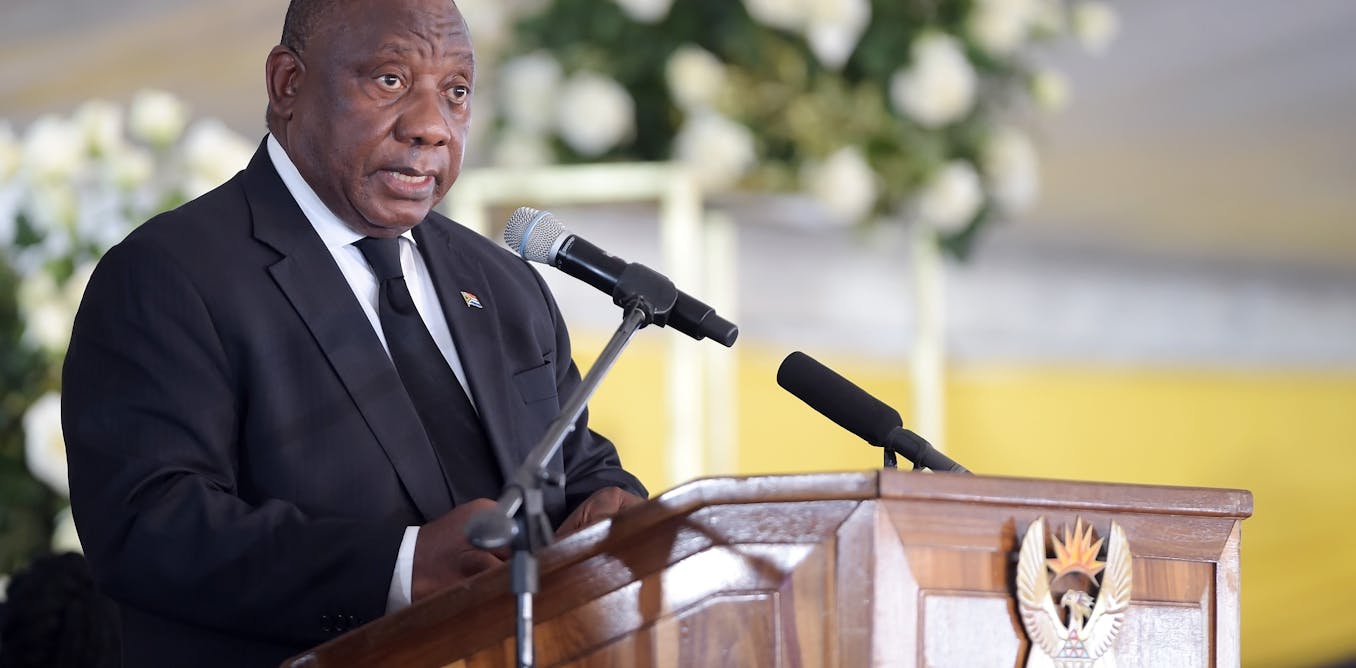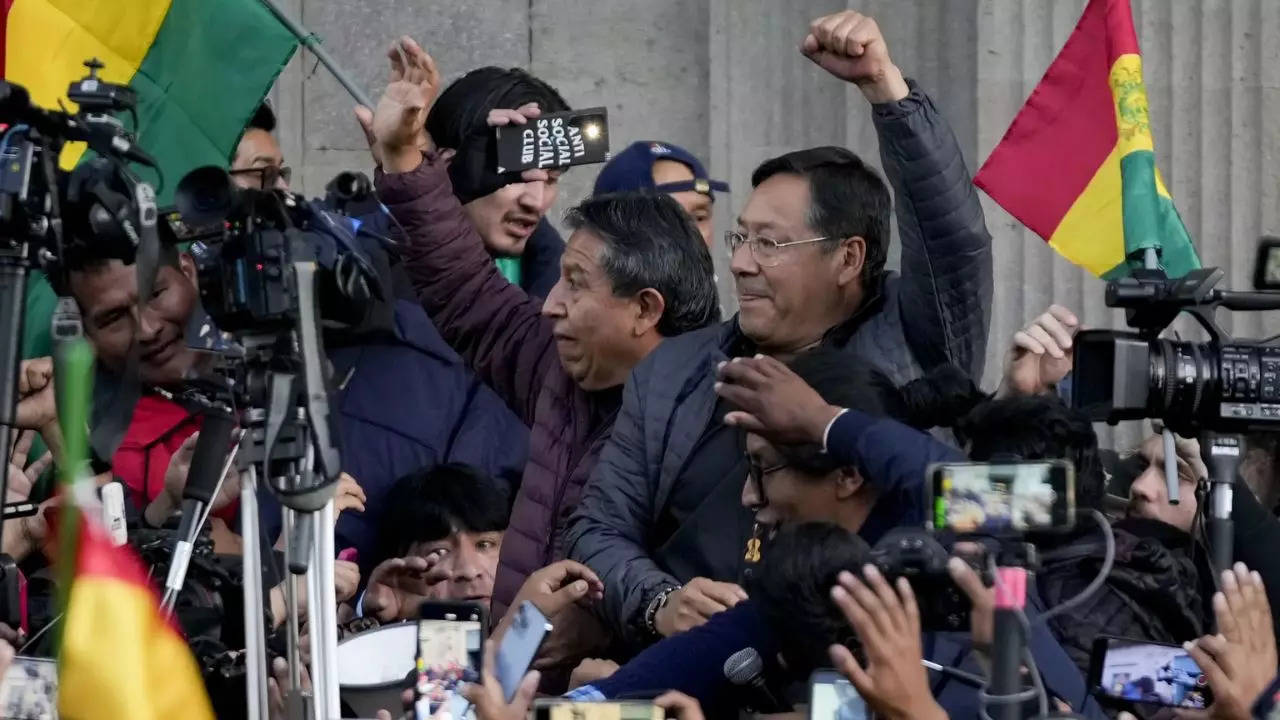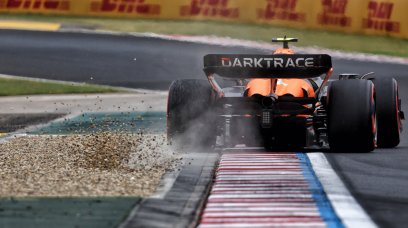South African President Cyril Ramaphosa faces possible impeachment in the country’s parliament for illegally storing thousands of US dollars on his farm in 2020. This is not the first time that the president has been threatened with impeachment in the post-democratic South African Republic. His scandal-prone predecessor, Jacob Zuma, survived an impeachment vote in 2017 for illegally using public money to renovate his private residence. However, there is a difference in the process that is followed this time. It is the first since parliament adopted the rules governing the impeachment process of the president in 2018 following the Constitutional Court ruling. Richard Calland explains.
The first steps
This is the first time that the process of petitioning and establishing an independent commission has been used. That alone makes this moment very important. How the group interprets and then applies the “law” will set an important precedent. This could be the subject of a judicial review, especially if the commission finds that there is insufficient evidence for the impeachment process to proceed to a full parliamentary inquiry.
The process is triggered when a party with parliamentary representation submits a petition of impeachment to the National Assembly.
In this case, it was done by a small party with only two seats, the African Transformation Movement (ATM), under section 89 of the constitution.
Section 89 is one of two parliamentary avenues by which a sitting president (or his government) can be removed from office. The second – according to Article 102 of the constitution, which is a vote of no confidence – the matter is purely political, and therefore subjective. Several such motions of no confidence were brought against Jacob Zuma, but he survived them all as the ruling African National Congress held the line.
Section 89 contains three specific grounds for “impeachment” (although the section does not use that word). The National Assembly can remove the President from office (with the support of at least two-thirds of the members) only if the President:
-
committed a serious violation of the constitution or the law
-
committed a serious violation
-
or suffers from an inability to perform official functions.
The fact that it is a parliamentary process initiated by a specific section 89 petition and that it requires objective scrutiny is of great importance because it requires a factual finding on one or other of the three grounds.
The new rules now require a two-step process to determine whether there is evidence that would justify removing the president from office.
The first step is that once the motion is tabled in Parliament, the National Assembly must set up a panel to conduct a “preliminary inquiry into the motion proposing a section 89 inquiry”.
The main purpose of the commission is to prevent false or frivolous impeachment attempts without a proper evidentiary basis.
Accordingly, the panel must consist of “three fit and proper, competent, experienced and respected South Africans, who may include a judge, who collectively possess the requisite legal competence and experience”.
Parties represented in parliament can nominate people to the commission, after which the Speaker of the National Assembly makes the appointment. In this case, the Speaker appointed former Chief Justice Sandile Ngkobo as the presiding judge.
The motion brought by the African Movement for Transformation seeking Ramaphosa’s impeachment, as noted by leading legal reporter Franny Rabkin, provides for tramlines within which the group must remain in carrying out its mandate. This limits the amount of evidence and allegations that the panel is empowered to consider.
Movement is relatively limited in the target area. It is limited to the specifics of the mysterious theft of money at Ramaphosa’s Phala Phala farm and his immediate response to the theft.
As such, Ngcoba is likely to be choosy about limiting the group’s discussion. Any evidence or allegations relating to a matter not based on the original motion will likely be disregarded.
Read more: The Ramaphosa scandal looks set to deepen the ANC’s decline, ushering in a new era of politics
The main legal responsibility of the group no to determine whether there is a “prima facie” case – meaning that “at face value” there appears to be an argument to be answered. Rather, it is whether there is “sufficient evidence” of one of the three grounds for removal set out in section 89.
In this case, the third reason – incapacity – does not arise. Instead, the question for the panel is whether there is sufficient evidence of serious misconduct or a serious violation of the law.
The word “serious” is very important here. If Ramaphosa broke the law or behaved inappropriately or unreasonably in response to the theft, that will not be enough to pass a review unless it is “serious”.
A high bar
It seems to me that the “sufficient evidence” test is subtle but qualitatively higher than “prima facie” because the commission must consider the evidence presented by the African Transformation Movement and then the President’s response and make a finding.
In turn, this means that the chairman of the commission and his two colleagues face a rather difficult task, as the rules impose serious limitations on the scope of their investigation.
The rules state that the board is “upon consideration of the matter.”
may, in its sole discretion, allow any member to post relevant written or recorded information for a specified period of time.
It is clear that the commission has done so and that the African Movement for Transformation has at least responded by presenting to the commission what they claim is further evidence. But if it is irrelevant to the motion and does not fall within the tramlines it has established, other extraneous evidence will and must be ignored by the panel.
After asking members of parliament for evidence – as this is a parliamentary process – the group should also have given the president a chance to respond. This may explain the delay in completing the panel’s work and the need for a two-week extension to November 30.
After that date, Parliament rightly delayed the rise for a year so that the panel’s report could be debated in early December.
The report must draw conclusions and justify its conclusion, but it can only do so on the basis of written evidence placed before it.
Consequences
Given the threshold test that the regulations set for exercising its authority, it is more likely that the panel will determine that there is insufficient evidence.
Read more: South African President Cyril Ramaphosa’s authority has eroded, putting his reforms at risk
Even then, the words the commission uses will be heavily weighted politically. At the very least, there will be much more information in the public domain about the curious events of that February night in 2020 at the president’s farm and how he handled the case.
This could have huge implications not only for Ramaphosa’s immediate political future and his long-term legacy, but also for constitutional accountability in South Africa.







